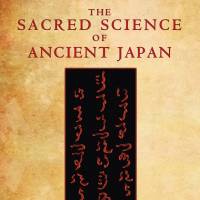Every religion or collection of national myths requires a great deal of editing. Some texts are selected as "official," others are discarded. A by-product of this is the world of apocrypha, mysterious manuscripts that, it is claimed, contain esoteric insights or divine revelations.
The Sacred Science of Ancient Japan: Lost Chronicles of the Age of the Gods, by Avery Morrow.
Bear and Company Books, Nonfiction.
In Japan, outside the official canon of books such as the "Nihon Shoki" and the "Kojiki," with their accounts of Japan's mythical past, there also exists a rich tradition of apocryphal documents, tenuously connected to the more orthodox works. This is the subject of Avery Morrow's "The Sacred Science of Ancient Japan."
According to the writer, there are roughly two dozen of these manuscripts, dating back centuries but rejected by orthodox scholars.
Looking at four of these, and translating from the Japanese, Morrow explores their origins and possible meanings. Are they remnants of a civilization far more advanced than conventional history tells us, and do they include prophecies?
Morrow takes an open-minded approach, combining critical analysis with the insights of philosophers Rene Guenon and Julius Evola. While examining the known historical facts, Morrow also employs the Socratic concept of "anamnesis," a belief that humans possess knowledge from past incarnations that can be creatively "rediscovered" through apocryphal documents —even if they prove to be forgeries.
The unusual texts covered include the Katakamuna Documents, esoteric writings supposedly handed to a engineer by a mysterious hunter in the mountains of Hyogo in the 1950s. In Morrow's hands this otherwise oddball subject matter is turned into a fascinating and readable tale.



















With your current subscription plan you can comment on stories. However, before writing your first comment, please create a display name in the Profile section of your subscriber account page.